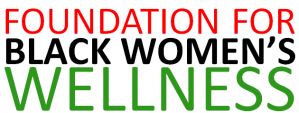Lisa Peyton Caire
Lisa Peyton-Caire serves as the Assistant Vice President of Life, Learning and Events at Summit Credit Union where she leads the company’s efforts on Financial Education, Community Giving, Corporate Events, and directs strategy for Diversity & Inclusion and Employee Wellness. Lisa is also Founder and President of The Foundation for Black Women’s Wellness, a Wisconsin based 501c(3) non-profit organization launched in 2012 and committed to eliminating health disparities and other barriers impacting the lives of African American women and girls.
Ms. Peyton-Caire is the co-founder and inaugural director of the University of Wisconsin-Madison’s highly successful DoIT Information Technology Academy (ITA), a pre-college technology training & college access program for first-generation college students now in its 18th year. She is also the owner of LPC Consulting, Inc., a sole proprietorship and boutique consulting firm offering specialized services and strategy development to schools, districts, non-profits, higher education institutions, healthcare organizations, government agencies, and businesses.
Spurred by her Mother’s untimely death from heart disease in 2006, Lisa established Black Women’s Wellness Day in 2008, an annual health summit now in its ninth year that aims to inform, inspire, and empower women and girls of African descent to build and sustain healthy, wellness-centered lives. She is actively engaged in a number of local efforts to promote healthy, thriving, sustainable communities. Lisa resides in Madison with her husband and their five children.
Connect Information
- Web: http://ffbww.org/
- Telephone: (608) 709-8840
Founder & President, Foundation for Black Women’s Wellness

Established in June 2012, The Foundation for Black Women’s Wellness is a Wisconsin based non-profit organization committed to mobilizing African American women to pursue and sustain mind-body-spirit wellness and to raise the visibility and support of Black women’s health as a community and public health priority. With the mission to eliminate health disparities and other barriers impacting the lives of women and girls of African descent, we work to achieve this through education and outreach, advocacy, support circles, and powerful partnerships.